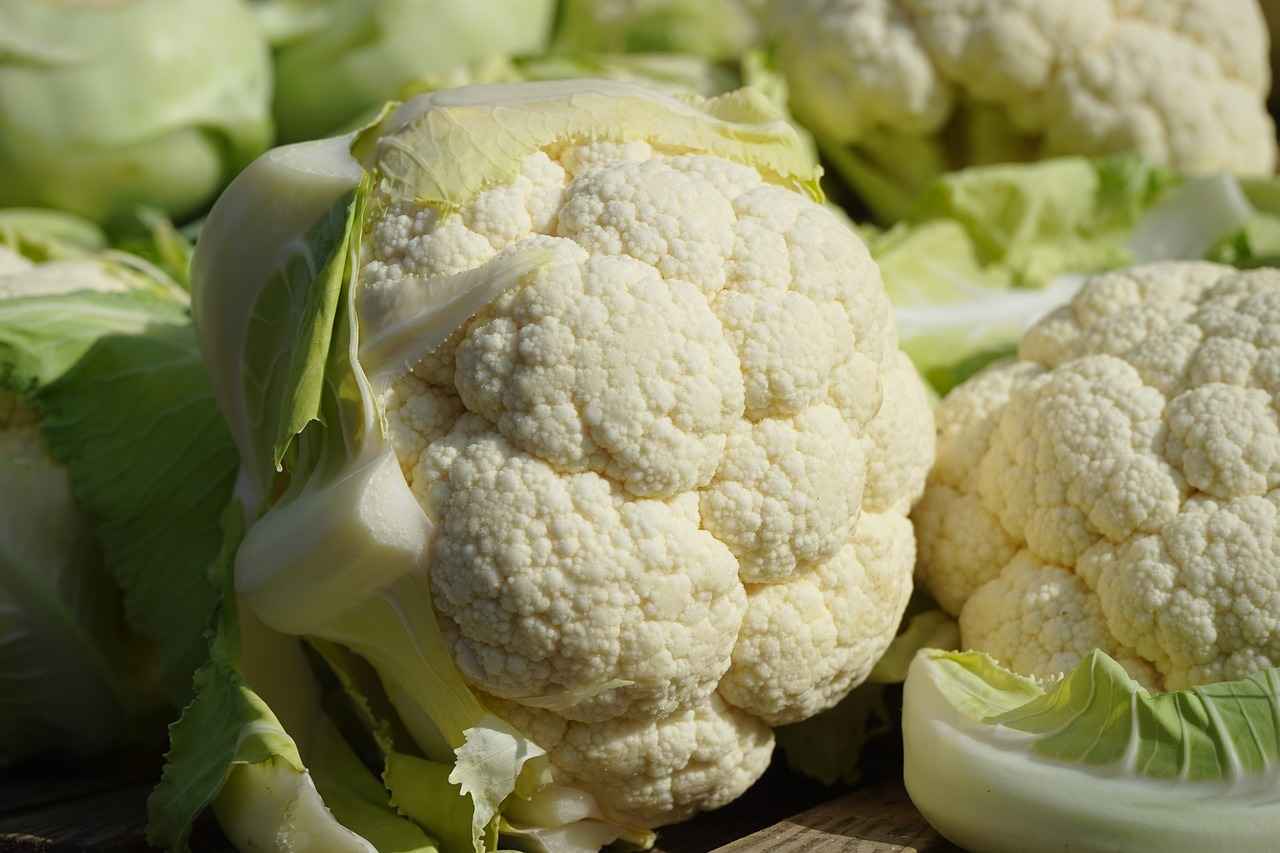This article delves into the multifaceted benefits of L-Glutamine, an essential amino acid. It plays a vital role in muscle recovery, gut health, and immune function, supported by scientific insights and practical applications.
What is L-Glutamine?
L-Glutamine is a non-essential amino acid that is pivotal for various bodily functions. It is especially important for muscle recovery, immune support, and maintaining gut health. Understanding its role can significantly enhance its benefits.
Benefits of L-Glutamine for Muscle Recovery
One of the primary benefits of L-Glutamine is its ability to aid muscle recovery post-exercise. It helps in reducing soreness and promotes faster healing, making it a valuable supplement for athletes and fitness enthusiasts.
- How L-Glutamine Aids Muscle Repair: It contributes to protein synthesis, essential for muscle repair and growth.
- The Role of L-Glutamine in Reducing Muscle Soreness: It alleviates muscle soreness after intense workouts, enabling athletes to train more effectively.
- Optimal Timing for L-Glutamine Supplementation: Timing your intake can enhance its effectiveness, especially post-workout.
L-Glutamine and Gut Health
L-Glutamine plays a crucial role in maintaining gut integrity and function. It assists in repairing the intestinal lining, thereby supporting digestive health.
- How L-Glutamine Supports the Gut Barrier: It strengthens the gut barrier, protecting against toxins and pathogens.
- Potential Benefits for Individuals with IBS: L-Glutamine may help alleviate symptoms of Irritable Bowel Syndrome (IBS) and promote gut health.
L-Glutamine’s Impact on Immune Function
This amino acid is known for its immune-boosting properties. Adequate levels of L-Glutamine can enhance immune response, particularly during periods of stress or illness.
- The Connection Between L-Glutamine and Immune Cells: It serves as a fuel source for immune cells, supporting overall health.
- Supplementing L-Glutamine During Illness: The body’s demand for L-Glutamine increases during illness, making supplementation beneficial for recovery.
How to Incorporate L-Glutamine into Your Diet
Incorporating L-Glutamine into your diet can be straightforward. It can be found in various natural food sources and supplements.
- Natural Food Sources of L-Glutamine: Foods rich in L-Glutamine include meat, fish, eggs, and dairy.
- Choosing the Right L-Glutamine Supplement: Select high-quality products to ensure effectiveness.
Potential Side Effects and Considerations
While L-Glutamine is generally safe, it’s crucial to be aware of potential side effects. Some individuals may experience adverse reactions, and certain populations should avoid supplementation.
- Common Side Effects of L-Glutamine: Possible side effects include gastrointestinal discomfort.
- Who Should Avoid L-Glutamine? Individuals with specific health conditions should consult a healthcare professional before starting supplementation.
Conclusion: Maximizing the Benefits of L-Glutamine
In conclusion, L-Glutamine offers numerous health benefits, from muscle recovery to gut health. Understanding its uses and how to incorporate it into your diet can significantly enhance your overall well-being.

What is L-Glutamine?
L-Glutamine is a vital non-essential amino acid that plays a significant role in numerous physiological processes within the body. It is particularly important for muscle recovery, immune support, and gut health. While the body can produce L-Glutamine, certain conditions such as intense physical activity, illness, or stress can increase its demand, making supplementation beneficial for many individuals.
Understanding the multifaceted roles of L-Glutamine can help individuals maximize its benefits, whether they are athletes looking to enhance their performance, individuals recovering from surgery, or those seeking to improve their digestive health.
L-Glutamine is particularly renowned for its role in muscle recovery. After intense exercise, muscle tissues experience stress and micro-tears, which can lead to soreness and fatigue. Supplementing with L-Glutamine can help alleviate these symptoms by:
- Reducing muscle soreness: L-Glutamine aids in the recovery process by decreasing muscle soreness and fatigue.
- Promoting protein synthesis: It supports the synthesis of proteins, which are essential for repairing and building muscle tissues.
- Enhancing overall recovery: By replenishing the body’s glutamine stores, recovery time is reduced, allowing athletes to train more frequently and effectively.
Another critical role of L-Glutamine is its contribution to gut health. It is a primary fuel source for the cells lining the intestines, helping to maintain the integrity of the gut barrier. This is particularly important for:
- Repairing the intestinal lining: L-Glutamine supports the healing of the gut lining, which can be compromised due to stress, poor diet, or illness.
- Managing digestive disorders: Individuals with conditions like Irritable Bowel Syndrome (IBS) may find relief from symptoms through L-Glutamine supplementation.
L-Glutamine is essential for a healthy immune system. It serves as a fuel source for immune cells, particularly during times of stress or illness. Adequate levels of L-Glutamine can:
- Enhance immune response: By providing energy to immune cells, L-Glutamine can help improve the body’s ability to fight off infections.
- Support recovery during illness: Supplementing with L-Glutamine during periods of illness can help meet increased demands and support quicker recovery.
Incorporating L-Glutamine into your diet can be done through both food sources and supplements. Foods rich in L-Glutamine include:
- Meat
- Fish
- Eggs
- Dairy products
For those who require higher doses, L-Glutamine supplements are widely available in various forms, including powders and capsules.
In conclusion, L-Glutamine is a powerful amino acid that offers numerous health benefits, especially in the realms of muscle recovery, gut health, and immune support. Understanding how to effectively incorporate L-Glutamine into your daily routine can significantly enhance your overall well-being and performance.

Benefits of L-Glutamine for Muscle Recovery
L-Glutamine is a powerful amino acid that plays a vital role in muscle recovery after exercise. For athletes and fitness enthusiasts, understanding how L-Glutamine aids in recovery can significantly enhance performance and overall well-being. This section explores the multifaceted benefits of L-Glutamine, particularly in the context of muscle recovery.
After intense workouts, muscle tissues experience stress and micro-tears, leading to soreness and fatigue. L-Glutamine contributes to the recovery process in several ways:
- Protein Synthesis: L-Glutamine is crucial for the synthesis of proteins, which are essential for muscle repair and growth. By supporting protein synthesis, it helps rebuild damaged muscle fibers more efficiently.
- Reduced Muscle Soreness: Supplementation with L-Glutamine has been shown to decrease the sensation of soreness, allowing athletes to return to training sooner and with less discomfort.
- Enhanced Recovery Time: By promoting faster healing of muscle tissues, L-Glutamine enables athletes to maintain a consistent training schedule without prolonged periods of downtime.
Moreover, L-Glutamine also plays a role in reducing inflammation and supporting the immune system, which can be particularly beneficial during periods of intense training. When the body is under stress from rigorous workouts, the demand for L-Glutamine increases. Therefore, ensuring adequate levels through diet or supplementation is crucial for optimal recovery.
In conclusion, L-Glutamine is a valuable ally for muscle recovery, helping to reduce soreness and promote faster healing. By incorporating L-Glutamine into their regimen, athletes can enhance their performance and recovery, allowing them to train harder and achieve their fitness goals.
How L-Glutamine Aids Muscle Repair
L-Glutamine is one of the most abundant amino acids in the body and plays a crucial role in muscle recovery and repair. Understanding how it aids in these processes is essential for athletes and fitness enthusiasts alike.
When we engage in intense physical activities, our muscles undergo stress and experience micro-tears. This is a normal part of the muscle-building process, but it requires efficient recovery mechanisms to ensure optimal performance in subsequent workouts. L-Glutamine is vital in this recovery process due to its role in protein synthesis, which is critical for repairing damaged muscle fibers.
During recovery, L-Glutamine acts as a precursor to the synthesis of proteins, which are the building blocks of muscle tissue. The biochemical process begins when L-Glutamine is converted into glutamate, another amino acid that is essential for protein synthesis. This conversion helps stimulate the production of muscle proteins, thereby enhancing the recovery process.
Moreover, L-Glutamine plays a significant role in maintaining the body’s nitrogen balance. After strenuous exercise, the body may enter a catabolic state where it breaks down muscle tissue for energy. Supplementing with L-Glutamine can help shift the body back into an anabolic state, promoting muscle growth and recovery.
Additionally, L-Glutamine has been shown to reduce muscle soreness, which is often a barrier to consistent training. By decreasing the levels of certain inflammatory markers that contribute to soreness, L-Glutamine allows athletes to train harder and more frequently without the prolonged discomfort that can hinder performance.
In conclusion, L-Glutamine is a powerful ally in muscle repair and recovery. Its role in protein synthesis, nitrogen balance, and reduction of muscle soreness makes it a valuable supplement for anyone looking to enhance their athletic performance and recovery.
The Role of L-Glutamine in Reducing Muscle Soreness
After an intense workout, athletes often experience muscle soreness, commonly referred to as delayed onset muscle soreness (DOMS). This discomfort can hinder performance and motivation to train. However, L-Glutamine, an amino acid found naturally in the body, has shown significant potential in alleviating this soreness, enabling athletes to train harder and more frequently.
Understanding Muscle Soreness
Muscle soreness typically arises from microscopic tears in muscle fibers during strenuous exercise. This process is a natural part of muscle building, but the associated pain can be a barrier to consistent training. Here, L-Glutamine plays a crucial role.
How L-Glutamine Works
- Protein Synthesis: L-Glutamine aids in the synthesis of proteins, essential for muscle repair and growth. By enhancing protein metabolism, it helps in quicker recovery from muscle damage.
- Reducing Inflammation: This amino acid has anti-inflammatory properties that can help reduce muscle soreness and swelling post-exercise.
- Hydration: L-Glutamine also promotes cellular hydration, which is vital for optimal muscle function and recovery.
Scientific Evidence
Research indicates that L-Glutamine supplementation can significantly reduce muscle soreness following rigorous workouts. In a study published in the Journal of Sports Medicine, athletes who supplemented with L-Glutamine reported lower levels of soreness compared to those who did not.
Practical Application
For athletes looking to incorporate L-Glutamine into their routine, timing is key. Consuming L-Glutamine shortly after workouts can maximize its benefits. Additionally, pairing it with carbohydrates can enhance its absorption.
Conclusion
Incorporating L-Glutamine into a post-workout regimen may be a game-changer for athletes seeking to minimize muscle soreness. By facilitating recovery, athletes can maintain a consistent training schedule, ultimately improving their performance and achieving their fitness goals.
Optimal Timing for L-Glutamine Supplementation
Understanding the optimal timing for L-Glutamine supplementation is crucial for maximizing its benefits in muscle recovery. This amino acid plays a significant role in repairing muscles and reducing soreness after intense workouts. By strategically timing your intake, you can enhance its effectiveness and support your training goals.
- Post-Workout Recovery: One of the best times to take L-Glutamine is immediately after your workout. During this period, your muscles are in a state of recovery, and L-Glutamine can help replenish depleted levels and initiate the healing process.
- Before Bed: Taking L-Glutamine before bedtime can also be beneficial. While you sleep, your body undergoes repair and recovery. Supplementing with L-Glutamine at this time can support muscle regeneration and reduce overnight muscle breakdown.
- Between Meals: Another effective strategy is to take L-Glutamine between meals. This can help maintain optimal levels in your bloodstream, ensuring that your muscles have a constant supply of this vital amino acid throughout the day.
Additionally, it’s essential to consider the dosage when timing your L-Glutamine intake. Most studies suggest a range of 5 to 10 grams per serving, depending on your individual needs and activity levels. Always consult with a healthcare professional or a nutritionist to tailor your supplementation plan effectively.
In conclusion, timing your L-Glutamine intake can significantly impact your muscle recovery process. By incorporating it post-workout, before bed, and between meals, you can harness its full potential and enhance your overall fitness results.
Who Can Benefit from L-Glutamine?
L-Glutamine supplementation can be particularly advantageous for a variety of groups, each with unique needs and health goals. Understanding who can benefit from this essential amino acid is crucial for maximizing its effects. Below, we explore specific populations that may find L-Glutamine supplementation beneficial.
- Athletes and Fitness Enthusiasts: Intense physical activity can deplete L-Glutamine levels in the body. Supplementation can aid in muscle recovery, reduce soreness, and enhance overall performance, allowing athletes to train harder and recover faster.
- Individuals Recovering from Surgery: Post-surgical recovery can be taxing on the body. L-Glutamine may support healing by promoting protein synthesis and maintaining gut health, which is vital during recovery.
- People with Digestive Disorders: Conditions such as Irritable Bowel Syndrome (IBS) and leaky gut syndrome can benefit from L-Glutamine’s role in repairing the intestinal lining. This amino acid helps maintain gut integrity, reducing inflammation and improving digestive function.
- Individuals Experiencing High Stress: Chronic stress can elevate the body’s demand for L-Glutamine. Supplementation may help support immune function and mental clarity during stressful periods.
- Older Adults: As we age, our bodies may require additional support for muscle maintenance and immune health. L-Glutamine can play a role in preserving muscle mass and enhancing recovery from illness or injury.
In conclusion, L-Glutamine supplementation can provide significant benefits across various populations, from athletes to individuals recovering from surgery or dealing with digestive issues. By understanding the specific needs of these groups, one can better appreciate the potential advantages of incorporating L-Glutamine into their health regimen.

L-Glutamine and Gut Health
L-Glutamine is an amino acid that plays a crucial role in maintaining gut integrity and function. Its significance extends beyond muscle recovery and immune support, as it serves as a primary fuel source for the cells lining the gastrointestinal tract. This section delves into how L-Glutamine aids in repairing the intestinal lining and promoting overall digestive health.
The intestinal lining, also known as the gut barrier, is essential for preventing harmful substances from entering the bloodstream. A compromised gut barrier can lead to a condition known as “leaky gut,” which is associated with various gastrointestinal disorders and systemic inflammation. L-Glutamine acts as a key player in maintaining this barrier by:
- Enhancing Cell Proliferation: L-Glutamine stimulates the growth and repair of enterocytes, the cells that make up the intestinal lining. This is vital for recovering from injuries or inflammation.
- Reducing Inflammation: By modulating inflammatory responses, L-Glutamine helps to alleviate symptoms associated with conditions like IBS (Irritable Bowel Syndrome) and Crohn’s disease.
- Supporting Mucosal Health: It contributes to the production of mucus, which protects the gut lining and aids in digestion.
Research indicates that individuals suffering from gastrointestinal disorders may benefit significantly from L-Glutamine supplementation. For instance, a study published in the American Journal of Clinical Nutrition found that L-Glutamine can reduce symptoms of IBS and improve overall gut function.
In conclusion, L-Glutamine is pivotal for gut health, playing a vital role in maintaining the integrity of the intestinal lining and supporting digestive processes. Incorporating L-Glutamine into your diet, whether through food sources or supplements, can be a beneficial strategy for those looking to enhance their digestive health.
How L-Glutamine Supports the Gut Barrier
The gut barrier serves as a critical line of defense against toxins and pathogens, ensuring that harmful substances do not enter the bloodstream. This barrier is composed of tightly packed cells that line the intestines, and maintaining its integrity is essential for overall health. One of the key players in supporting this barrier is the amino acid L-Glutamine.
L-Glutamine is known for its ability to strengthen the gut lining. It provides the necessary energy for the cells in the intestines, promoting their growth and repair. This is particularly important after episodes of gut distress, such as infections or inflammatory conditions, where the gut barrier can become compromised.
Key Mechanisms of Action
- Cellular Energy Source: L-Glutamine is a primary fuel for enterocytes, the cells that line the intestinal wall. By supplying energy, it helps these cells function optimally.
- Regulation of Tight Junctions: L-Glutamine plays a vital role in maintaining the integrity of tight junctions—the connections between intestinal cells that prevent leakage of harmful substances.
- Anti-inflammatory Properties: This amino acid has been shown to reduce inflammation in the gut, which can further protect the barrier from damage.
Benefits for Digestive Health
By fortifying the gut barrier, L-Glutamine not only helps prevent the entry of toxins but also supports a balanced gut microbiome. A healthy gut microbiome is essential for digesting food effectively and absorbing nutrients. Moreover, it can alleviate symptoms associated with conditions like Irritable Bowel Syndrome (IBS), where the gut barrier is often compromised.
In conclusion, L-Glutamine is a powerful ally in maintaining gut health. By supporting the gut barrier, it promotes overall digestive wellness and helps protect against various gastrointestinal issues. Incorporating L-Glutamine through diet or supplementation can be a beneficial strategy for those seeking to enhance their gut integrity.
Potential Benefits for Individuals with IBS
Irritable Bowel Syndrome (IBS) is a chronic condition that can significantly impact an individual’s quality of life. Symptoms such as abdominal pain, bloating, and irregular bowel habits can be both uncomfortable and debilitating. Recent studies suggest that L-Glutamine, a vital amino acid, may offer promising benefits for those suffering from IBS. This article delves into how L-Glutamine can help alleviate symptoms and support overall gut health.
L-Glutamine is crucial for maintaining the integrity of the gut lining. It serves as a primary fuel source for the cells in the intestines, promoting their regeneration and repair. By strengthening the gut barrier, L-Glutamine helps prevent the translocation of harmful substances, which can exacerbate IBS symptoms.
- Reduces Inflammation: L-Glutamine has anti-inflammatory properties that can help soothe the gastrointestinal tract, potentially reducing symptoms such as pain and discomfort.
- Improves Digestive Function: By supporting the gut lining, L-Glutamine may enhance nutrient absorption and digestion, which is often compromised in individuals with IBS.
- Balances Gut Microbiota: Some studies indicate that L-Glutamine may positively influence gut bacteria, promoting a healthier microbiome, which is essential for optimal digestive health.
For individuals with IBS, incorporating L-Glutamine into their diet can be beneficial. It is available in various forms, including powders and capsules. Consulting with a healthcare professional before starting supplementation is crucial to determine the appropriate dosage and ensure it aligns with individual health needs.
In summary, L-Glutamine presents a potential avenue for alleviating the symptoms of IBS and enhancing gut health. While more research is needed to fully understand its effects, its role in supporting gut integrity and function makes it a valuable consideration for those affected by this challenging condition.

L-Glutamine’s Impact on Immune Function
L-Glutamine is a vital amino acid that plays a significant role in supporting the immune system. As the most abundant free amino acid in the body, it acts as a fuel source for immune cells, particularly during times of stress or illness. This article delves into how maintaining adequate levels of L-Glutamine can enhance immune response and promote overall health.
When the body is under stress, such as during intense physical activity, illness, or injury, the demand for L-Glutamine increases. This amino acid is essential for the proliferation of lymphocytes, which are crucial for immune function. A deficiency in L-Glutamine can lead to a weakened immune response, making the body more susceptible to infections and illnesses.
Research indicates that supplementing with L-Glutamine can be particularly beneficial for athletes and individuals recovering from surgery. During these times, the body experiences heightened stress and increased metabolic demands, which can deplete L-Glutamine levels. Supplementation helps to replenish these levels, thereby enhancing immune function.
Moreover, L-Glutamine has been shown to support gut health, which is closely linked to immune function. The gut is home to a significant portion of the immune system, and maintaining gut integrity is crucial for preventing pathogens from entering the bloodstream. L-Glutamine aids in repairing the intestinal lining, thus reinforcing the gut barrier and contributing to overall immune health.
In conclusion, ensuring adequate levels of L-Glutamine through diet or supplementation can significantly enhance immune response. This amino acid not only supports immune cell function but also plays a pivotal role in gut health, making it a critical component of a robust immune system. For those looking to improve their immune health, considering L-Glutamine supplementation might be a valuable step.
The Connection Between L-Glutamine and Immune Cells
L-Glutamine is a crucial amino acid that plays an essential role in supporting the immune system, particularly during periods of stress or illness. This section delves into how L-Glutamine serves as a vital fuel source for immune cells, enhancing their function and overall health.
When the body is under stress—whether from intense physical activity, illness, or injury—the demand for L-Glutamine significantly increases. Immune cells, such as lymphocytes and macrophages, rely heavily on this amino acid to maintain their energy levels and functionality. A deficiency in L-Glutamine can lead to a weakened immune response, making the body more susceptible to infections and diseases.
One of the primary roles of L-Glutamine in immune function is its ability to support the proliferation and activity of immune cells. During times of stress, the body prioritizes the production of immune cells to combat potential threats. L-Glutamine provides the necessary energy for these cells to multiply and function effectively. This is particularly important during recovery from illness, where a robust immune response is critical for healing.
- Boosts Immune Cell Function: L-Glutamine enhances the activity of various immune cells, including T-cells and macrophages, which are crucial for fighting infections.
- Reduces Inflammation: By supporting the immune system, L-Glutamine can help modulate inflammatory responses, reducing the risk of chronic inflammation.
- Supports Gut Health: A healthy gut is vital for a strong immune system. L-Glutamine helps maintain the integrity of the gut barrier, preventing harmful substances from entering the bloodstream.
During periods of illness, the body’s demand for L-Glutamine can increase by up to 50%, making supplementation beneficial for those recovering from surgery, trauma, or severe infections. By ensuring adequate levels of L-Glutamine, individuals can support their immune systems more effectively, leading to improved recovery times and overall health.
In conclusion, L-Glutamine serves as a fundamental fuel source for immune cells, enhancing their function and supporting the body’s ability to respond to stressors. Incorporating L-Glutamine through diet or supplementation can be a strategic approach to bolster immune health, particularly during challenging times.
Supplementing L-Glutamine During Illness
During periods of illness, the body’s demand for L-Glutamine significantly increases. This vital amino acid plays a crucial role in supporting various physiological functions, especially in times when the body is under stress. Understanding how L-Glutamine supplementation can aid recovery is essential for anyone looking to enhance their health during illness.
The Role of L-Glutamine in Recovery
- Immune Support: L-Glutamine serves as a primary fuel source for immune cells, helping to bolster the immune response when the body is fighting off infections.
- Gut Health: It is instrumental in maintaining the integrity of the gut lining, which can become compromised during illness. A healthy gut is vital for nutrient absorption and overall health.
- Muscle Preservation: Illness can lead to muscle wasting; L-Glutamine helps to preserve muscle mass, which is particularly important for individuals recovering from surgery or severe illness.
How to Supplement L-Glutamine Effectively
To maximize the benefits of L-Glutamine during illness, consider the following:
- Dosage: Consult a healthcare provider to determine the appropriate dosage tailored to your specific needs.
- Timing: Taking L-Glutamine at regular intervals throughout the day can help maintain steady levels in the bloodstream.
- Form: L-Glutamine is available in various forms, including powders and capsules. Choose a form that fits your lifestyle for easier integration into your routine.
Conclusion
Incorporating L-Glutamine supplementation during periods of illness can significantly aid in recovery. From supporting immune function to preserving muscle mass and enhancing gut health, L-Glutamine is a powerful ally in the healing process. Always consult with a healthcare professional before starting any new supplement regimen to ensure it aligns with your health needs.

How to Incorporate L-Glutamine into Your Diet
Incorporating L-Glutamine into your diet can be a simple yet effective way to enhance your overall health. This amino acid offers numerous benefits, including improved muscle recovery, gut health, and immune function. Here are some practical tips to help you seamlessly integrate L-Glutamine into your daily routine.
- Natural Food Sources: Many foods are rich in L-Glutamine, making it easy to include in your meals. Consider incorporating the following options:
- Meat: Beef, chicken, and pork are excellent sources.
- Fish: Salmon and tuna provide a healthy dose of L-Glutamine.
- Dairy Products: Milk, yogurt, and cheese are not only delicious but also beneficial.
- Eggs: A versatile source of protein that contains L-Glutamine.
- Plant-Based Sources: Beans, lentils, and spinach can also contribute to your intake.
- Supplementation: If dietary sources are insufficient, consider L-Glutamine supplements. Here are some tips for choosing the right one:
- Quality Matters: Look for reputable brands with third-party testing.
- Formulation: Choose between powders, capsules, or tablets based on your preference.
- Dosage: Follow recommended dosages, typically ranging from 5 to 10 grams per day, but consult with a healthcare professional for personalized advice.
Timing Your Intake: For optimal benefits, consider the timing of your L-Glutamine intake. Consuming it post-workout can aid in muscle recovery, while taking it at night may support gut health during sleep.
In conclusion, incorporating L-Glutamine into your diet can be straightforward and beneficial. By focusing on natural food sources and considering supplementation when necessary, you can maximize the advantages of this essential amino acid for your health and wellness.
Natural Food Sources of L-Glutamine
L-Glutamine is a vital amino acid that plays a crucial role in various bodily functions, including muscle recovery, gut health, and immune support. To harness its benefits, it’s essential to incorporate foods rich in L-Glutamine into your diet. Here, we explore a variety of natural sources that can help you increase your intake of this important nutrient.
- Meat:
Lean meats such as chicken, turkey, and beef are excellent sources of L-Glutamine. They not only provide a significant amount of this amino acid but also offer high-quality protein necessary for muscle repair and growth. - Fish:
Fish varieties like salmon and tuna are not only rich in omega-3 fatty acids but also contain substantial levels of L-Glutamine, making them a great addition to your meals for both muscle recovery and overall health. - Eggs:
Eggs are a versatile food that provides essential amino acids, including L-Glutamine. They are easy to prepare and can be incorporated into various dishes, ensuring you get a healthy dose of this nutrient. - Dairy Products:
Dairy items such as milk, yogurt, and cheese are not only rich in calcium and protein but also serve as good sources of L-Glutamine, promoting gut health and muscle recovery. - Nuts and Seeds:
Almonds, walnuts, and sunflower seeds are plant-based sources of L-Glutamine. They are perfect for snacking and can easily be added to salads or smoothies. - Legumes:
Beans and lentils are excellent sources of L-Glutamine for those following a vegetarian or vegan diet. They provide both protein and fiber, contributing to muscle health and digestive wellness. - Vegetables:
Certain vegetables, particularly cabbage, spinach, and broccoli, contain L-Glutamine. Incorporating these into your meals can enhance your nutrient intake while providing additional health benefits.
By including these food sources in your diet, you can effectively boost your L-Glutamine levels and support your overall health. Whether through animal or plant-based options, there are plenty of ways to enjoy the benefits of this essential amino acid.
Choosing the Right L-Glutamine Supplement
With the vast array of L-Glutamine supplements available on the market, selecting the most suitable product can indeed be a daunting task. To make an informed decision, it is essential to consider several key factors that can influence the effectiveness and safety of the supplement you choose.
- Purity and Quality: Look for products that are free from fillers, additives, and artificial ingredients. High-quality L-Glutamine should ideally contain 100% L-Glutamine without unnecessary additives.
- Form of L-Glutamine: Supplements come in various forms, including powders, capsules, and tablets. Powdered forms are often preferred for their convenience and quick absorption, while capsules may be easier for those who dislike the taste.
- Brand Reputation: Choose supplements from reputable brands that have undergone third-party testing. This ensures that the product meets safety and efficacy standards.
- Dosage: Check the recommended dosage on the label. Most studies suggest a daily intake of 5 to 10 grams for optimal benefits, but it’s always best to consult with a healthcare professional for personalized advice.
- Price: While price should not be the sole factor, it’s important to compare costs among different brands. Sometimes, a higher price can reflect better quality ingredients.
Additionally, consider reading customer reviews and testimonials to gauge the effectiveness of the product. Engaging with online communities or forums can also provide valuable insights from actual users.
In conclusion, taking the time to evaluate these factors can greatly enhance your experience with L-Glutamine supplementation. By making an informed choice, you can maximize the benefits of this powerful amino acid for your health and wellness journey.

Potential Side Effects and Considerations
While L-Glutamine is widely recognized for its numerous health benefits, it is crucial to understand that supplementation may not be suitable for everyone. This section provides a thorough overview of potential side effects and considerations to keep in mind when incorporating L-Glutamine into your routine.
| Potential Side Effects | Description |
|---|---|
| Gastrointestinal Issues | Some individuals may experience nausea, diarrhea, or abdominal pain when taking L-Glutamine, especially in high doses. |
| Allergic Reactions | Though rare, some people may have allergic reactions to L-Glutamine, manifesting as rash, itching, or swelling. |
| Interactions with Medications | L-Glutamine may interact with certain medications, particularly those affecting the liver or kidneys. Always consult a healthcare professional before starting supplementation. |
It’s essential to monitor your body’s response to L-Glutamine and consult a healthcare provider if you experience any adverse effects. Additionally, individuals with specific health conditions, such as liver disease or kidney problems, should approach L-Glutamine supplementation with caution.
Who Should Avoid L-Glutamine?
- Individuals with liver disease should avoid L-Glutamine due to potential strain on liver function.
- Those with kidney issues should also refrain from supplementation, as it may exacerbate their condition.
- Pregnant or breastfeeding women should consult a healthcare professional before using L-Glutamine.
In conclusion, while L-Glutamine can offer significant health benefits, it is vital to be aware of its potential side effects and the populations that should avoid it. Always prioritize safety and seek guidance from healthcare professionals when considering supplementation.
Common Side Effects of L-Glutamine
L-Glutamine is a widely used amino acid supplement known for its numerous health benefits, particularly in muscle recovery and gut health. However, like any supplement, it may lead to certain side effects in some individuals. It is crucial to be aware of these potential effects to ensure safe usage and to consult a healthcare professional when necessary.
What to Watch For
- Gastrointestinal Issues: Some individuals may experience digestive discomfort, including nausea, diarrhea, or abdominal pain. These symptoms can arise, especially when taking high doses of the supplement.
- Allergic Reactions: Although rare, allergic reactions to L-Glutamine can occur. Symptoms may include rash, itching, or swelling, particularly if you have a known allergy to amino acids.
- Headaches: Some users report experiencing headaches after starting L-Glutamine supplementation. This could be due to changes in the body’s amino acid balance or dehydration.
- Fatigue: In certain cases, individuals may feel unusually tired or fatigued after taking L-Glutamine, which could be linked to its effects on neurotransmitter levels.
When to Consult a Healthcare Professional
If you experience any of the above symptoms or other unusual reactions after starting L-Glutamine, it is advisable to consult a healthcare professional. Additionally, individuals with pre-existing health conditions, such as liver or kidney issues, should seek medical advice before beginning supplementation. Pregnant or breastfeeding women are also encouraged to discuss their plans with a healthcare provider to ensure safety.
Conclusion
While L-Glutamine can offer significant health benefits, being aware of potential side effects is essential for safe use. Monitoring your body’s response and consulting with a healthcare professional can help you make informed decisions about supplementation.
Who Should Avoid L-Glutamine?
L-Glutamine is a popular supplement known for its numerous health benefits, including muscle recovery and gut health support. However, certain populations should exercise caution or avoid L-Glutamine supplementation altogether. Understanding these groups can help ensure safety and efficacy in supplementation.
- Individuals with Kidney Disorders: Those with pre-existing kidney conditions should avoid L-Glutamine, as excessive intake can further strain kidney function. The kidneys are responsible for filtering amino acids, and any impairment may lead to complications.
- People with Liver Issues: Similar to kidney concerns, individuals with liver diseases may experience adverse effects from L-Glutamine. The liver plays a crucial role in amino acid metabolism, and supplementation could exacerbate existing conditions.
- Pregnant and Breastfeeding Women: While the safety of L-Glutamine during pregnancy and lactation has not been thoroughly studied, it is generally advised for pregnant and breastfeeding women to avoid unnecessary supplements unless prescribed by a healthcare professional.
- Individuals with Certain Neurological Disorders: Some neurological conditions, such as epilepsy, may be affected by the intake of amino acids like L-Glutamine. It is crucial for individuals with such disorders to consult their healthcare provider before starting supplementation.
- Allergic Reactions: Although rare, some individuals may experience allergic reactions to L-Glutamine. Symptoms may include rash, itching, or difficulty breathing. If any adverse reactions occur, it is essential to discontinue use immediately.
In conclusion, while L-Glutamine can offer significant benefits for many, it is essential for specific populations to approach supplementation with caution. Always consult a healthcare professional before starting any new supplement regimen, especially if you belong to one of the aforementioned groups.

Conclusion: Maximizing the Benefits of L-Glutamine
In summary, L-Glutamine is a remarkable amino acid that plays a vital role in enhancing overall health. Its benefits extend beyond just muscle recovery; it significantly contributes to gut health, immune function, and overall well-being. Understanding how to effectively utilize L-Glutamine can lead to substantial improvements in various aspects of health.
For athletes and fitness enthusiasts, L-Glutamine is essential for muscle recovery. It aids in reducing post-exercise soreness and promotes quicker healing, allowing for more intense training sessions. Furthermore, by supporting protein synthesis, L-Glutamine plays a critical role in muscle repair and growth.
In addition to its benefits for muscle health, L-Glutamine is crucial for maintaining a healthy gut. It helps repair the intestinal lining, which is vital for preventing issues such as Irritable Bowel Syndrome (IBS). By strengthening the gut barrier, L-Glutamine supports digestive health and enhances nutrient absorption.
Moreover, L-Glutamine has a profound impact on the immune system. It serves as a primary fuel source for immune cells, especially during periods of stress or illness. Ensuring adequate levels of this amino acid can bolster the body’s defense mechanisms, promoting quicker recovery from infections.
To incorporate L-Glutamine into your daily routine, consider consuming natural sources such as meat, fish, eggs, and dairy. Additionally, supplementation can be an effective way to meet your body’s needs, particularly for those with increased demands.
In conclusion, understanding the multifaceted benefits of L-Glutamine and how to incorporate it into your diet can significantly enhance your overall health and performance. Whether you’re an athlete, someone recovering from surgery, or dealing with digestive issues, L-Glutamine can be a valuable addition to your wellness regimen.














